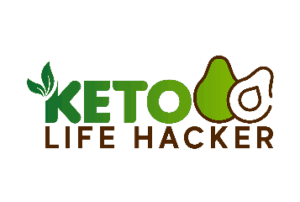Magnesium is responsible for over 300 different types of biochemical reactions within the body. It helps the body maintain normal nerve and muscle functions, keeps the heart beat regulated at a steady pace, supports the health of the immune system, boosts energy, fights off insomnia and contributes to maintaining bone strength.
Despite all of these benefits, a surprising 80% of all Americans have a magnesium deficiency.
To make matters worse, low carb diets like that of keto impact magnesium deficiency rates even more, because the more common magnesium-rich foods like beans, grains, and fruits are also unfortunately high in carbs.
So how is someone supposed to get the right amount of magnesium on the keto diet? The best way is through seeking out low carb magnesium-rich foods, and by taking additional magnesium supplements. In this article, I’ll break down the pros, cons, and details of both below.
What is Magnesium?
Magnesium is classified as a mineral that can be found within the earth, ocean, various types of plants, animals and people. About 60% of all magnesium found within the human body comes from the bones, while the rest is in soft tissues, muscles, and the blood. It is contained in trace amounts within every cell in the body as well, and because of this it is vital for a variety of different bodily functions.
Magnesium has been found to provide the following benefits:
- Boost exercise performance and muscle growth
- Improve symptoms of Type 2 Diabetes
- Fight against mental health disorders like depression and anxiety
- Prevent migraines
- Lower blood pressure
- Reduce pain by decreasing inflammation
- Reduce insulin resistance
- Improve PMS symptoms
- Fight off sugar cravings
You can learn more about the science behind these benefits via Dr. Eric Berg in this short, informative video:
Magnesium and the Keto Flu
Magnesium could really be your secret weapon to fight against and prevent the dreaded Keto Flu. When your body begins entering the state of ketosis, it will excrete different minerals, like magnesium, that you aren’t replenishing as fast, creating an overall deficit, which can lead to flu-like symptoms (nausea, indigestion, sweating, fatigue). Magnesium is a specific type of electrolyte, just as phosphorus, sodium, and potassium are. And when a loss of such an electrolyte takes place, it can greatly effect both your body’s hydration and overall energy levels.
Consciously making an effort to eat foods rich in magnesium during every meal and snack is a great way to offset this deficiency and keep your body running smoothly as it gets used to ketosis.
How Much Magnesium Do You Need on Keto?
The recommended daily amount (RDA) for magnesium is about 400mg per day. This magnesium can come from both magnesium-rich foods and in the form of magnesium supplements. This daily amount does however vary based on height, weight, and sex, and depends on a variety of medical conditions that could contribute to your diet and digestion. For a comprehensive target on personal ideal keto amounts, be sure to consult with a doctor or nutritional specialist.
What Are Good Food Sources of Magnesium?
Some of the best food sources for magnesium come from nuts, meats, and vegetables. Here are some common types that are easy to put into any meal or snack:
- Avocados – 1 = 58mg (15% RDA)
- Cashews – 1 ounce = 80mg (20% RDA)
- Almonds – 1/4 cup = 80mg (20% RDA)
- Black Beans – 1 cup = 120mg (30% RDA)
- Tofu – 3.5 ounces = 53mg (13% RDA)
- Pumpkin Seeds – 1 ounce = 150mg (37% RDA)
- Salmon – half a fillet = 53mg (13% RDA)
- Spinach – 1 cup = 157mg (37% RDA)
How Do Magnesium Supplements Work?
For magnesium, there are several types of supplements that can be very handy, especially when on a restrictive diet like that of the ketogenic diet. These can come in the forms of orally-taken pills, powders to mix into drinks, and transdermal topical creams that go on the surface of one’s skin.
The different types of supplements can get a little confusing, and can be expensive in certain stores. I’ve found that Amazon tends to have the best deals, so I usually exclusively order mine from there. The best types of magnesium supplements can be classified in their own ways with their own respective benefits, such as:
Magnesium Malate – facilitates energy production
My top magnesium malate brands include:
Magnesium Glycinate – supports relaxation
My favorite magnesium glycinate brands for relaxation are:
Magnesium Aspartate – fights fatigue and restlessness
Lastly, to help work against that dreaded combination of fatigue and insomnia, my recommended magnesium aspartate supplements are:

